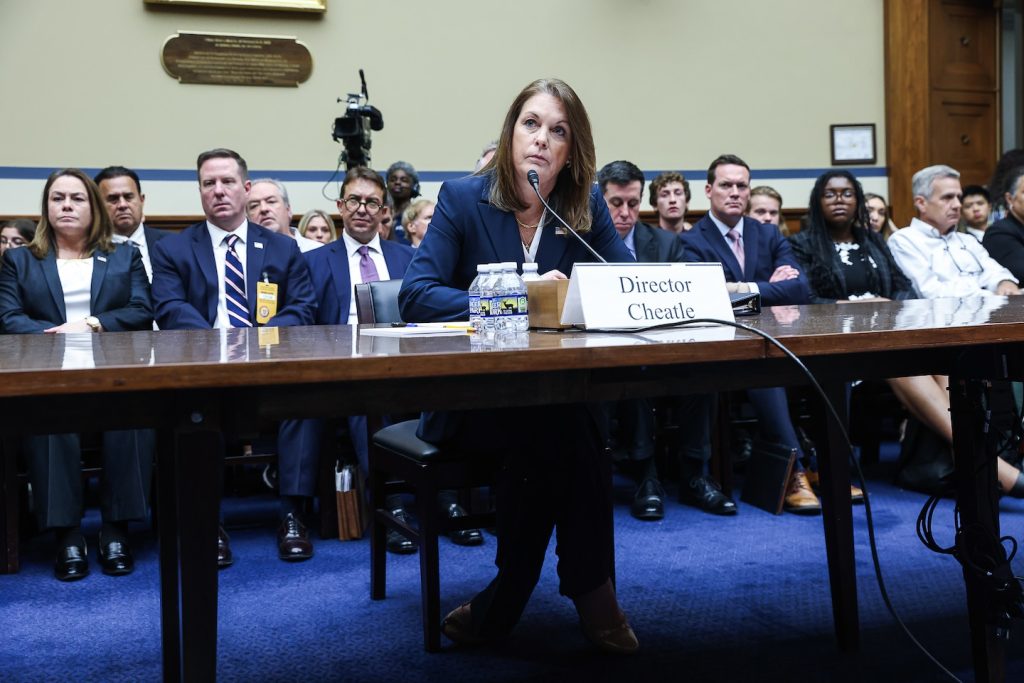Rep. Mike Kelly (R-Pennsylvania), who represents Butler County and has ties to law enforcement in the area, was appointed chairman of the committee, which also includes Republican Reps. Mark Green (Tenn.), David Joyce (Ohio), Laurel Lee (Fla.), Michael Walz (Fla.), Clay Higgins (Louisiana) and Pat Fallon (Texas).
On the other side of the aisle, Rep. Jason Crow (D-Colo.), a former Army Ranger who served in Iraq and Afghanistan, was appointed the committee’s top Democrat. The other members are Rep. Lou Corea (D-Calif.), Rep. Madeleine Dean (D-Pennsylvania), Rep. Chrissy Houlahan (D-Pennsylvania), Rep. Glenn Ivey (D-Md.), and Rep. Jared Moskowitz (D-Fla.).
“We have every confidence in this bipartisan, stalwart and extremely capable group of lawmakers to find the facts, ensure accountability, and ensure this kind of failure never happens again,” Johnson and Jeffries said in a joint statement.
The special committee would have subpoena powers and control the House committee’s investigation into the assassination attempt, they said.
In a deeply polarized Congress, similar committees have seen mixed results in recent years, but so far lawmakers have shown unusual seriousness and cooperation in investigating the assassination attempt on Trump, a former president and 2024 Republican candidate. Republicans protested the previous high-profile select committee the Democratic-led House created to investigate the Jan. 6, 2021, attack on the U.S. Capitol; only two Republicans ultimately served on the committee.
The commission’s three main goals are to determine what caused the security and communications breakdown that allowed 20-year-old Thomas Matthew Crooks to open fire from a rooftop just outside the outdoor rally’s security perimeter, to ensure accountability, and to prevent future Secret Service failures. The last shooting of a U.S. leader under Secret Service protection was in 1981, when a gunman opened fire on President Ronald Reagan as he was leaving a speaking engagement at the Washington Hilton.
Senators are scheduled to hold a hearing on Tuesday with Acting Director of the Secret Service Ronald Roe and Deputy FBI Director Paul Abbate.
In the days since the shooting, lawmakers have been frustrated by the lack of details provided by the Secret Service.
Secret Service Director Kimberly Cheatle resigned last week, a day after giving controversial testimony before the House Oversight Committee. FBI Director Christopher A. Wray provided more detail about the assassination attempt in testimony before the House Judiciary Committee on Wednesday, but angered some lawmakers by saying that Trump’s injuries were caused by a bullet or shrapnel. The FBI later clarified that investigators believe Trump was wounded by a bullet or shrapnel.
Ivey, a former assistant federal prosecutor who serves on two House committees that have already begun investigating the shooting, said the task force needs to gather information quickly from multiple sources to piece together a comprehensive picture of what happened that day. Ivey said that when he visited the scene in Butler, Pennsylvania, after the shooting, local law enforcement officials and others on the scene “were happy to share their insights.”
A former U.S. government official with experience investigating past major security incidents said lawmakers should focus on putting together an independent timeline to compare with the official protection plan drawn up by the Secret Service before the rally.
This will help members determine “whether the plan itself was flawed, whether the scope of defense was neglected, whether someone neglected their duties and why,” said the official, who spoke on condition of anonymity to discuss sensitive security matters candidly.
Since the assassination attempt, Secret Service officials have urged the Trump campaign to avoid large outdoor gatherings, The Washington Post reported last week, but Trump wrote in a Truth Social post over the weekend that he would continue to hold such rallies.


